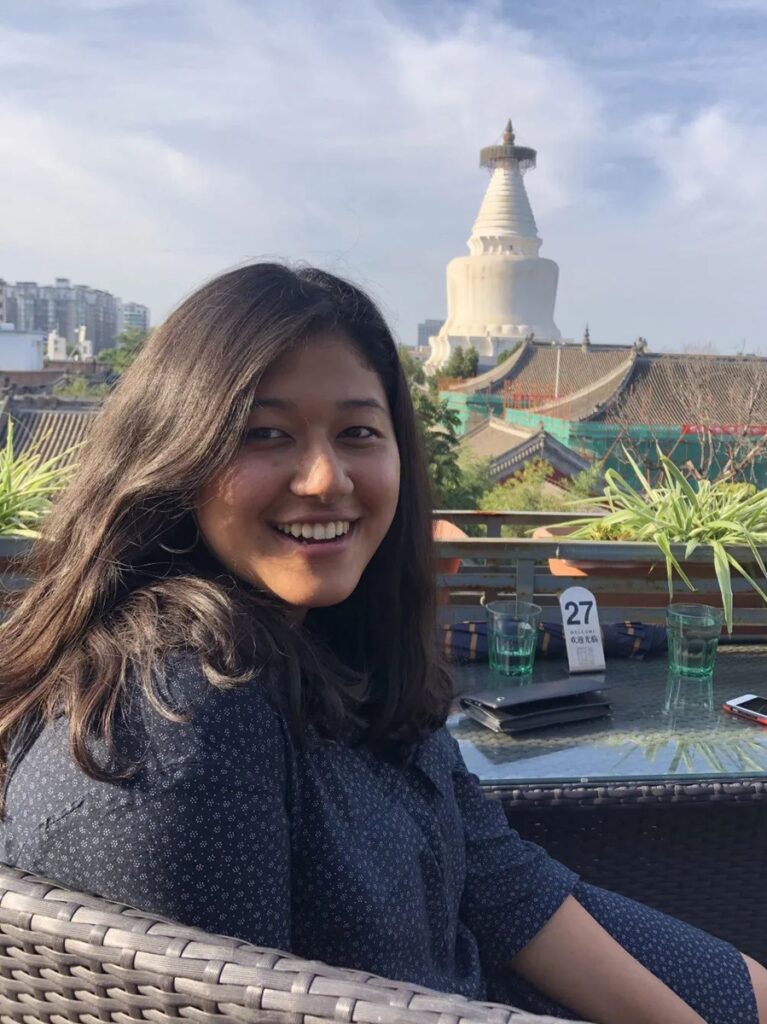Editor’s Note
Peking University students and alumni are spread all across the world. PKU Personalities interview series is a part of our determination to keep Pekingers connected in this time of global isolation.
This series of interviews aims to introduce notable Pekingers dedicated to international dialogue and cross-cultural communications to the rest of our PKU family and the world.
About Aneka
Aneka Rebecca Rajbhandari is a graduate from Peking University’s School of Government Class of 2021, with a degree in Political Science. Originally from Nepal, she first came to Beijing in 2015 with no basic command of the Chinese language. As a requirement of the Chinese Government Scholarship (CGS) for students with no grasp of Chinese language Chinese, Aneka first studied Chinese language at Beijing Language and Culture University’s Pre-University Program. She then completed another year at Peking University and passed the entrance exam before embarking on her undergraduate degree. She is now doing her masters in Chinese politics at the Silk Road School of Renmin University of China.
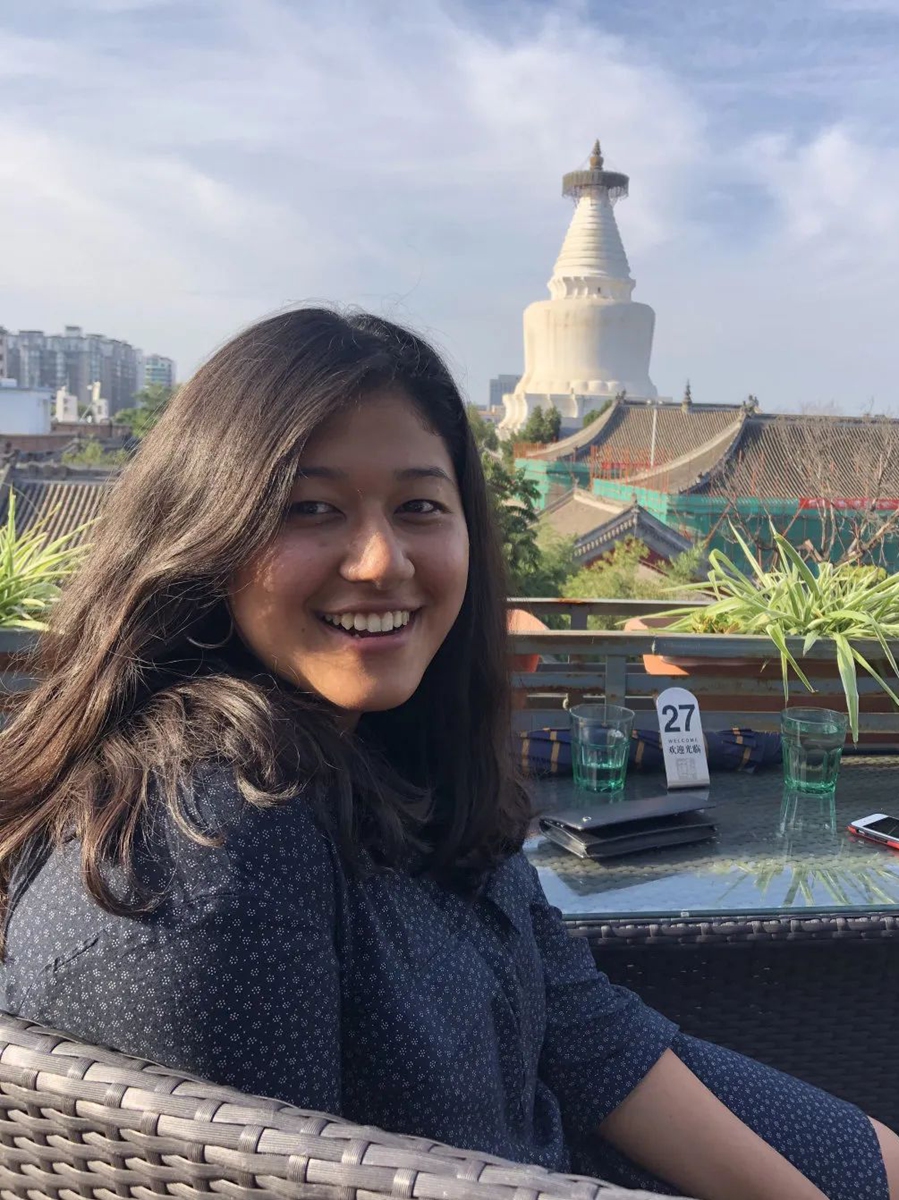
Aneka Rebecca Rajbhandari
Facing skepticism about her decision to study in China
Though a Nepali, Aneka was actually born in Thailand and had in fact lived there for 11 years while her parents worked and completed their masters degrees before subsequently moving back to Nepal.
It was not until Aneka’s father, who has been to China several times since the late 90s through his work at the UN, that she got motivated to pursue her interest in political science in China.
“He had seen China’s development over the years and explained the importance of China in this region”.
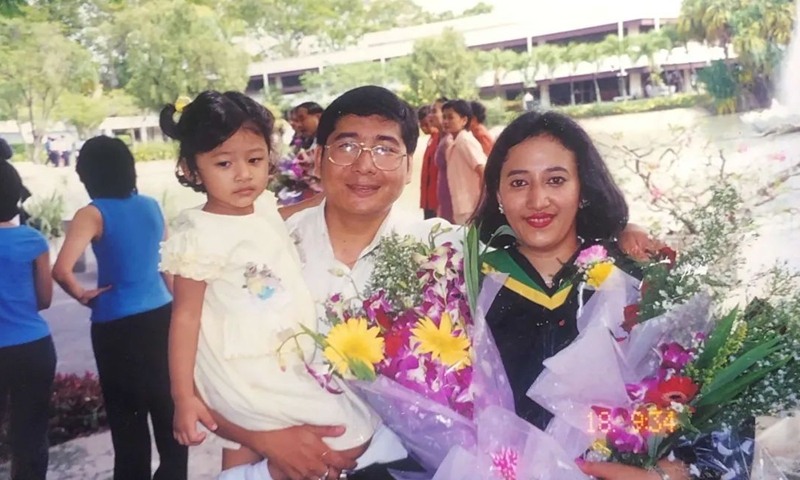
Aneka attending a her mother’s master’s graduation in Thailand
Aneka also mentioned how Nepal is a landlocked country sandwiched between India and China, and it is a lot easier for Nepali people to understand India due to its open border and the similarities in language and culture. On the other hand, Nepal and China are bordered by mountains and difficult topography which makes it naturally difficult for exchanges. To put it simply, China is a country that was less explored by Nepalese at that time.
“When I decided to apply to China, I had a lot of classmates in high school who were skeptical about my decision. It is understandable that they had such a reaction because western universities, especially US universities, were generally more common and popular in Nepal”.
Nonetheless, Aneka was firm and keen on understanding Chinese foreign policy and learning the Chinese language. Now, she is able to write and converse in English, Nepali, Hindi and Mandarin proficiently. She also mentioned how “being able to speak these languages also means that she can now converse with half of the world’s population”.
Aneka was fairly aware of the obstacles she would have to overcome with this decision, but she still shared her excitement and motivation behind embarking on this challenging journey of learning the Chinese Language from ground zero.
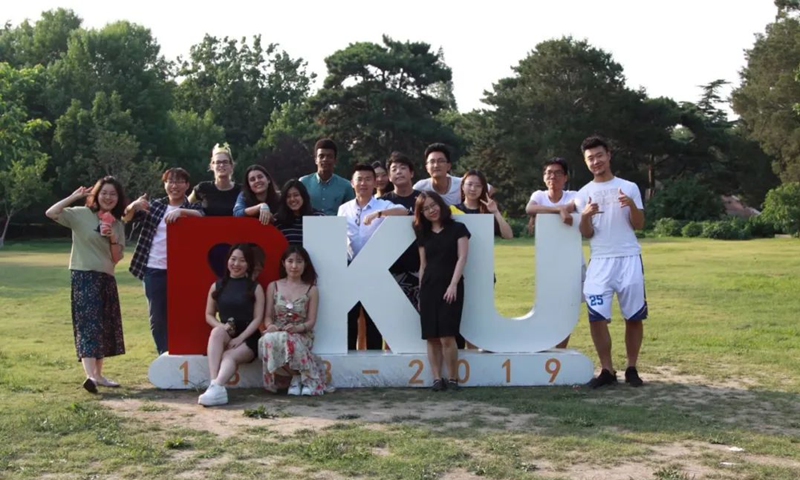
Aneka with her classmates and teacher
Witnessing China
Interestingly, Aneka’s first encounter with China started as young as in grade 6 (about 12 years old), where she also had her earliest experience in fundraising. That was the time when she heard of the devastating Sichuan earthquake. Coming from a country that is not new to earthquakes, she knew how scary it could be. With the encouragement of her cousin, she raised some funds from her school then and received a chance to give it to the Chinese Ambassador to Nepal H.E. Zheng Xianglin. She was also honored to be able to be invited to the embassy at that age, and it was certainly very encouraging for Aneka.
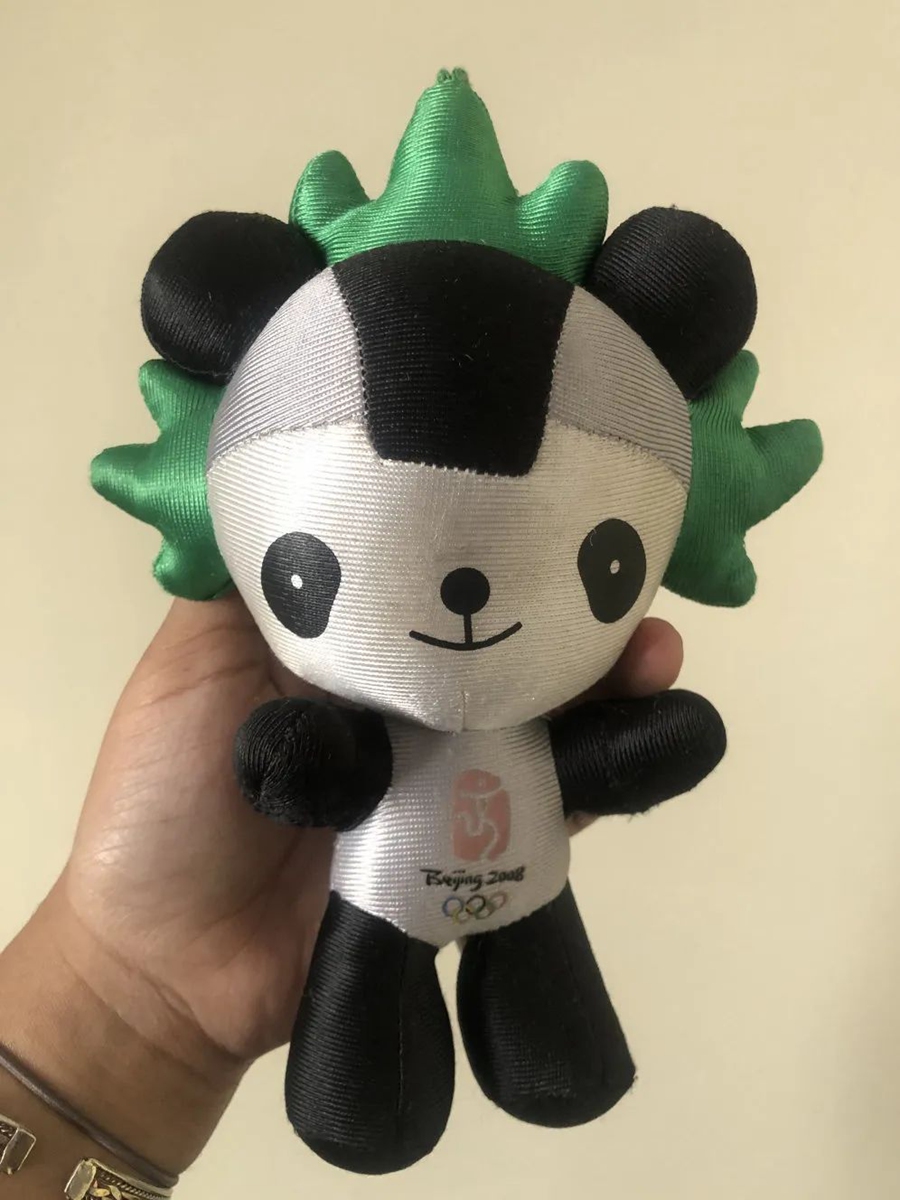
Aneka received this from the Chinese Government back in 2008 after the donation
When asked if her impressions changed before and after coming to China, Aneka shared her fair share of interesting experiences and insights. Even though she has heard about the drastic developments China has undergone over the years through the words of her father and the news, Aneka realized the importance of witnessing with her own eyes only when she reached China.
“As the saying goes and as Chinese President Xi Jinping mentioned in his reply letter to International Students of PKU, 百闻不如一见 —— China is really worth witnessing”.
Aneka emphasized how it is not just about China’s urban and infrastructure development, but what intrigued her the most was the intangible aspect of Chinese society like the culture and the values for. She was particularly amazed and encouraged by the Chinese’s constant drive and determination to learn.
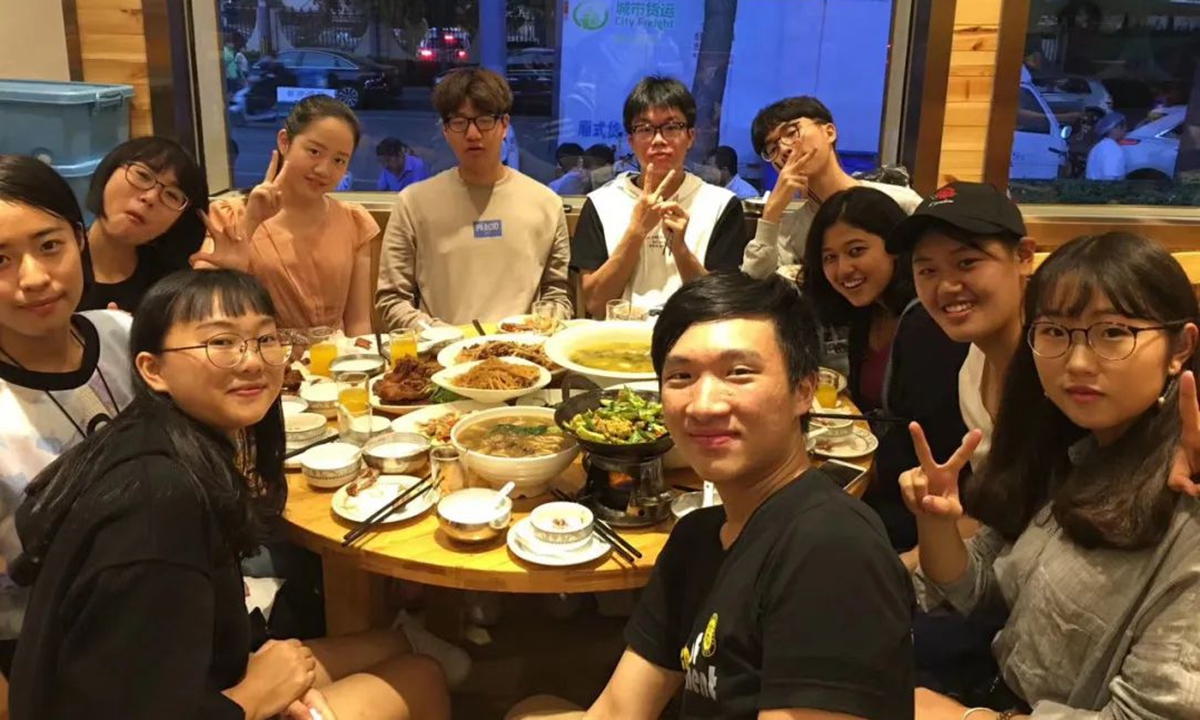
Aneka with her student council friends in 2017
“I noticed that Chinese people are usually very curious and always interested to learn more new things. I still remember befriending a security guard when I was learning Chinese language, he wanted to practice his English language and I wanted to practice Chinese, although I had a difficult time understanding his Chinese language due to a thick accent, I was pleasantly surprised to notice how different Chinese language can sound in different cities”.
Why political science in China?
While the International Relations course was a lot more popular among international students, Aneka believes that in order to be able to understand international politics one has to begin with understanding China’s very own domestic politics — domestic politics influences foreign policy and eventually international relations. Hence, she thought, where better to learn Chinese politics other than the school itself?
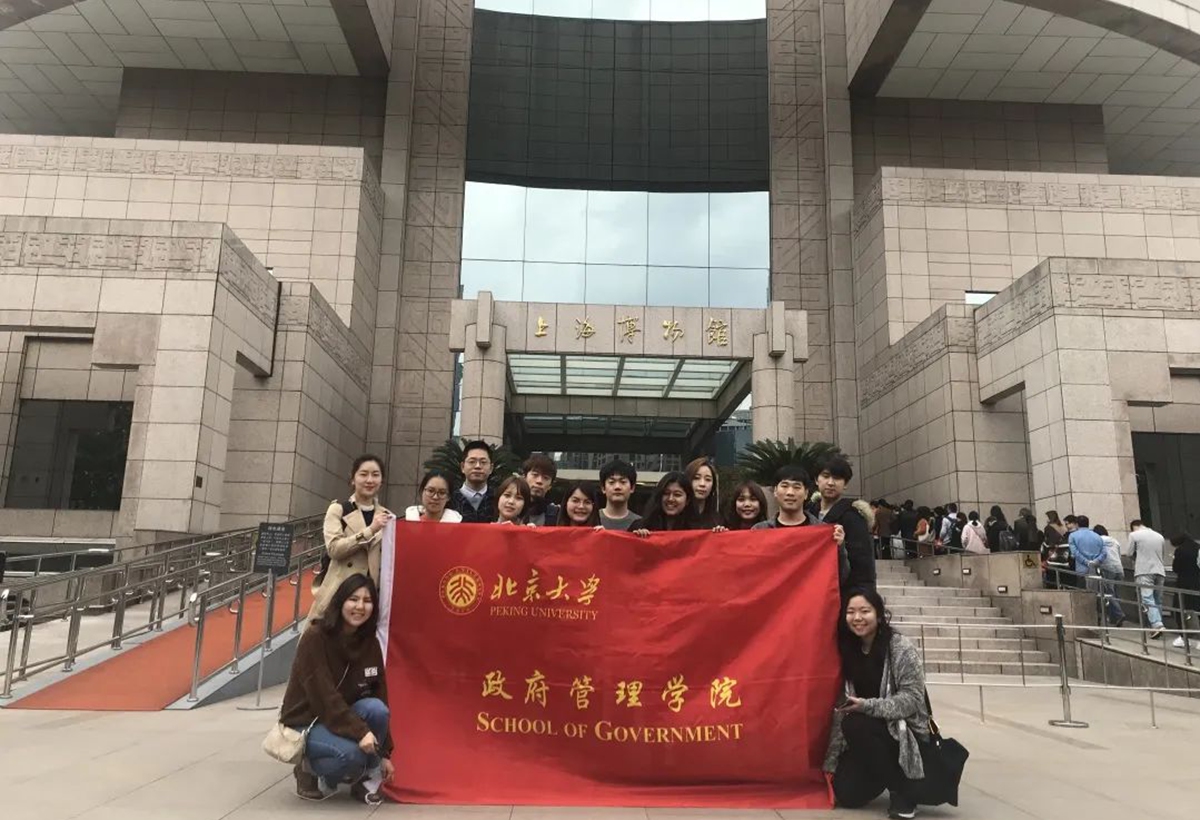
Trip to Shanghai for internaitonal students in School of Government
As one of the only four international students in her batch, Aneka recollected how difficult it was to grapple with the tenacity of the political science course work in the beginning.
With such a small international community in the faculty, Aneka was determined to become the senior that she never had, now as an alumnus — actively reaching out to international students from her department, and guiding the students in PKU.
“In my batch besides me, there were only two other South Koreans and one Mongolian student. Very few international students were interested in studying politics in China due to existing stereotypes”.
Moreover, often influenced by western media, Aneka explains that people generally have a rather skeptical view on studying politics in China and “fear the bias”. However, she disagrees with such a perception and instead believes that this is exactly why studying China in China should be encouraged. In terms of politics, she believes that it’s the foundation and an influential factor in international relations.
Being the first Nepali Undergraduate in PKU
As the first Nepali student in PKU’s undergraduate program, it was definitely intimidating for Aneka in the beginning. Having taken the “road not taken or least taken” meant that Aneka needed to learn everything by herself, without any guidance from any senior from her own country who could recommend classes, study methods or even share class notes. Nonetheless, Aneka was very grateful for this experience which has made her more independent and resilient as a person.
“I believe that every path to success begins with stepping out of your comfort zone”.
Every year, PKU welcomes students from all around the world, and being the only one from Nepal pushed Aneka to explore the diversity on campus. She also mentioned how PKU has provided her with ample opportunities to represent her country on various platforms. These include the annual International Culture Festival and the 2019 BRI Youth Summit co-organized by Hong Kong Poly-Technic University. She could still vividly recall how busy she was during ICF — preparing the stalls and being at the stall for the entire day because she was the only Nepali who could speak the Chinese Language prior. Aneka was also grateful to meet Chinese friends who have been to Nepal, professors who have studied Nepali history, art, religion, and also friends who were studying Nepali language as their major.
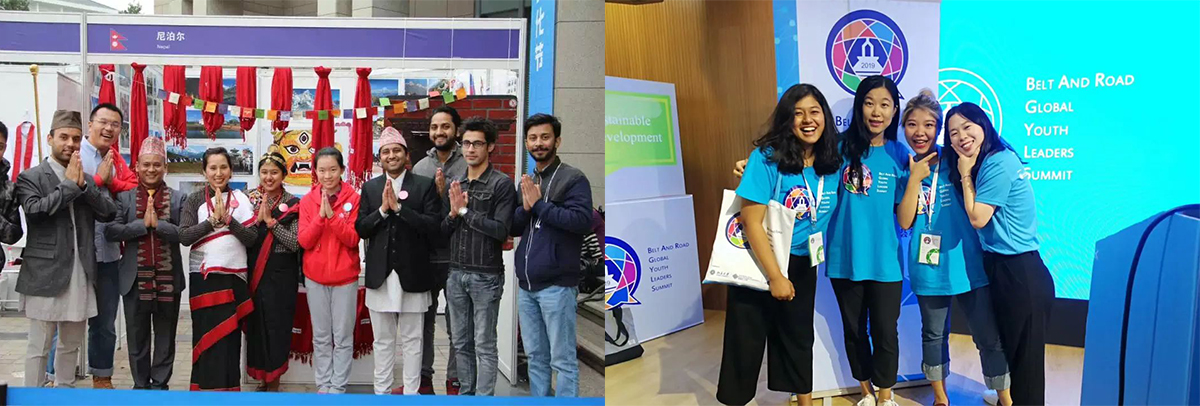
Aneka attending International Culture Festival of 2017 (Left) and BRI Youth Summit in 2019 (Right)
“I have no words to describe how glad I am that I choose China and China choose me — I believe it’s ‘缘分’. If you told me 10 years ago that I would be graduating from Peking University in a Chinese-taught program in political science, I wouldn’t believe you!”
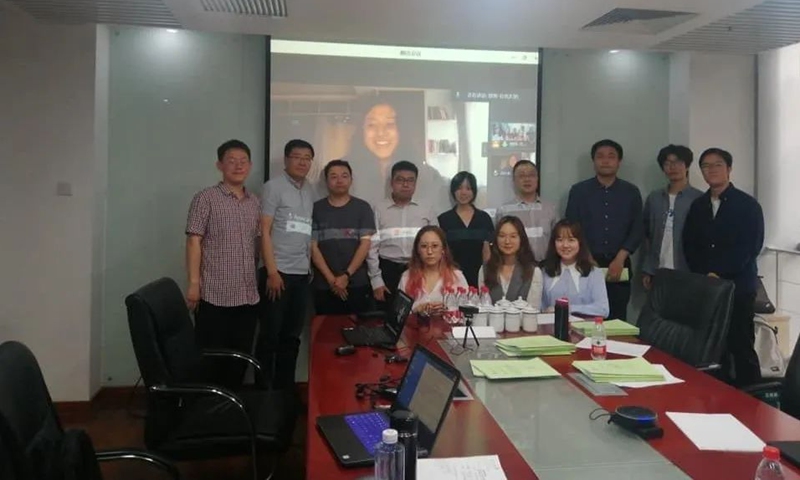
Aneka attending thesis defense
Future Plans
Just a few months before she graduated, Aneka came to know about a full scholarship masters program in Chinese politics at Renmin University of China. She eventually pursued it and placed her focus on Sino-Nepal or Sino-South Asia affairs. Aneka also mentioned how having a strong base from Peking University allowed her to look further and deeper into her area of interest.
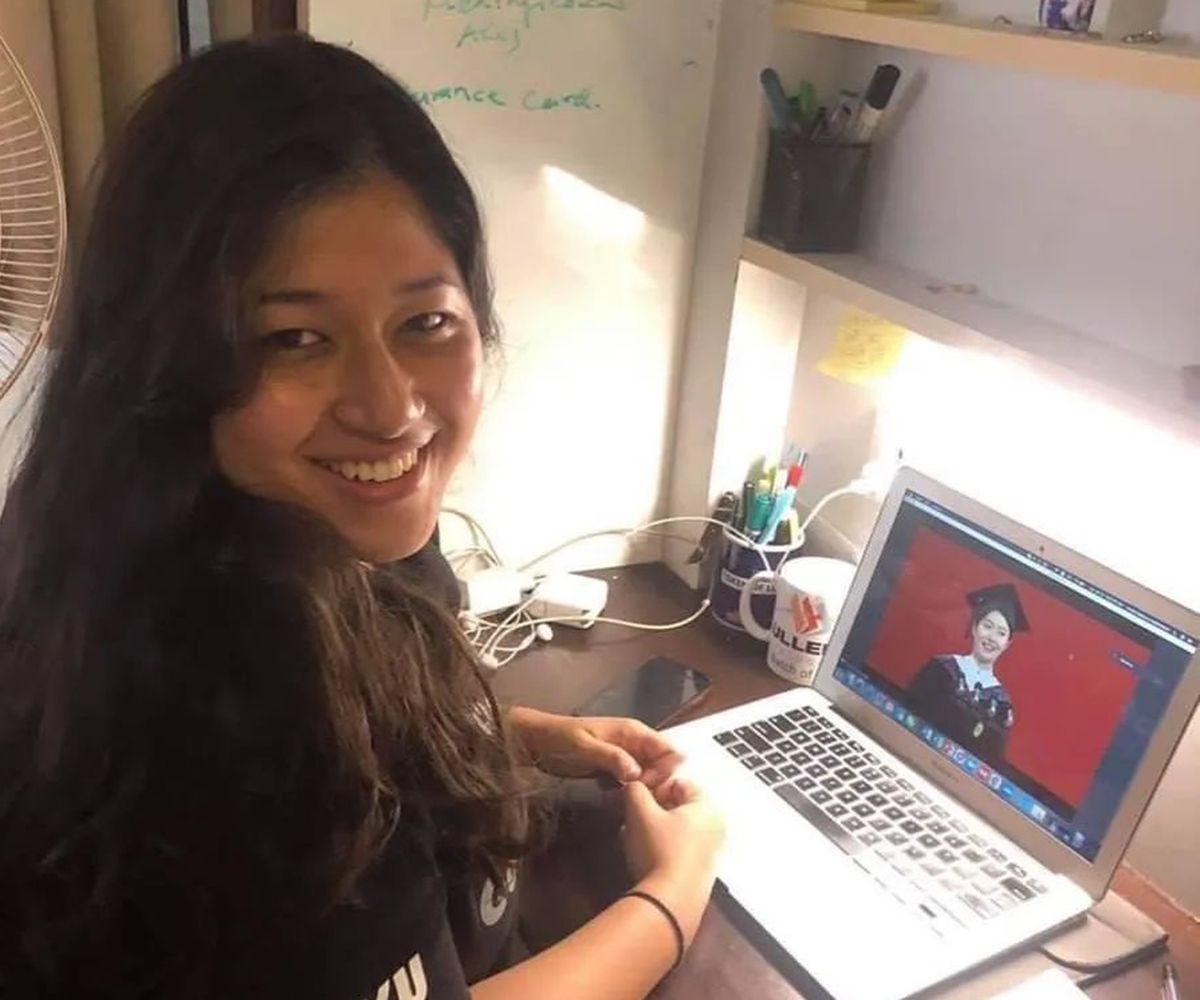
Aneka Watching the graduation ceremony online
“Having studied political science and now further pursuing it is very exciting — in particular, the experience of living in China and observing the political system and events, has provided so much first hand experience for an international student. I not only learned about politics and the Chinese political system in class through theories and perspectives but also in real life outside of class”.
Aneka is particularly inspired by a saying from Lao Tzu (老子): “千里之行始于足下” —— Journey of a thousand miles begins with a step. This has prompted her to stay grounded and optimistic throughout her whole journey.
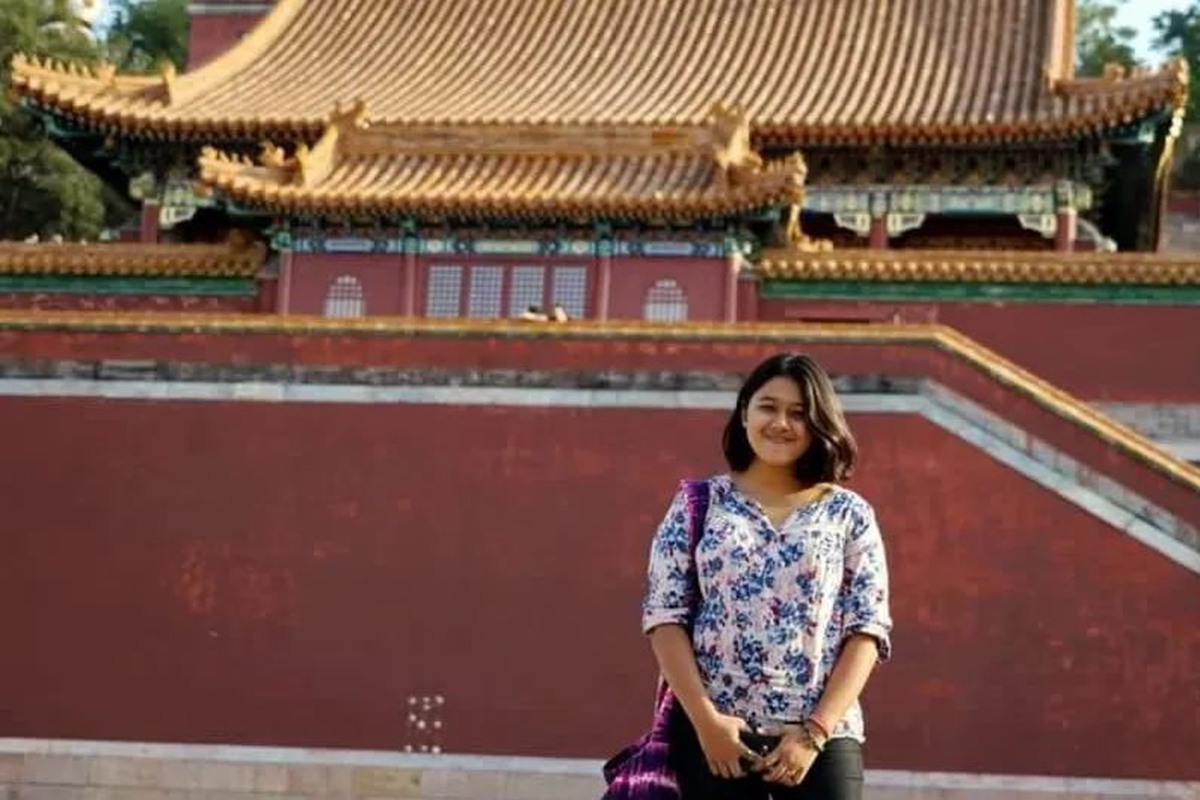
Aneka at Summer Palace in 2015
Aneka Rebecca Rajbhandari

